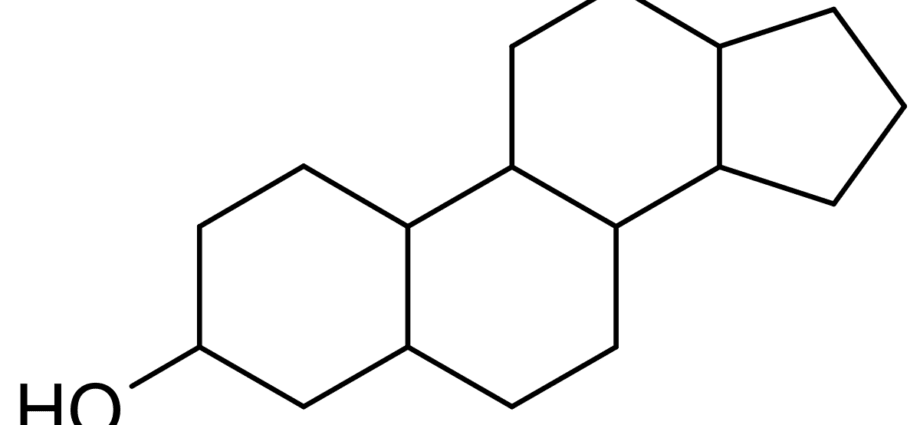Contents
These are vital substances for our body. In the human body, they control the permeability of cell membranes, and also affect metabolic processes. These substances are an integral part of lipids and are essential for our health and attractiveness.
Sterol-rich foods:
General characteristics of sterols
Sterols are an integral part of vegetable and animal fats. They belong to the group of polycyclic alcohols and are found in the membranes of all living organisms.
Sterols are found in nature in two states: in the form of free alcohols, and also in the form of esters of higher fatty acids. Outwardly, they are a crystalline substance, practically insoluble in water.
Sterols that are found in the organisms of animals and humans are called zoosterols. The most famous of these is cholesterol.
Scientists microbiologists also identified another fairly common species – these are sterols of lower and higher plants, called phytosterols. These are B-sitosterol, campesterol, stigmasterol, brassicasterol. They are derived from plant materials such as soybean oil and rapeseed oil.
In addition, mycosterols (fungal sterols, for example, ergosterol), as well as sterols of microorganisms, are still found in nature. Ergosterol is very useful for human health. Under the influence of ultraviolet light, it turns into vitamin D. Industrial sterols are used to produce hormones, as well as group D vitamins.
Daily need for sterols
Nutritionists say that the daily dosage of cholesterol should not exceed 300 mg. Plant sterols are recommended to be consumed in an amount of 2-3 grams per day.
For people with heart and vascular problems, the rate is calculated according to their physical condition and the doctor’s recommendations.
The need for sterols increases with:
- high blood cholesterol;
- weak immunity;
- pre-stroke and pre-infarction state (phytosterols are used);
- insufficient amount of vitamins A, E, K, D in the body;
- with a lack of energy;
- during pregnancy and breastfeeding;
- in case of decreased libido;
- if necessary, additional heat energy;
- with hard physical labor;
- with high mental stress;
- with the manifestation of signs of rickets disease (ergosterol is used for treatment).
The need for sterols is decreasing:
In the absence of all of the above factors.
Digestibility of sterols
The process of assimilation of plant sterols is much more active than that of animals. This discovery is associated with the fact that the chemical bond of phytosterols is less resistant to processing in gastric juice. In this regard, they are used for emergency power generation.
Zoosterols, on the contrary, are able to resist cleavage for a long time. And this, in turn, helps a person feel less hungry. It is believed that men are more likely to give preference to products containing animal sterols, and women – to plant sterols.
Useful properties of sterols and its effect on the body
According to studies carried out by Russian nutritionists, the positive effects of sterols on the human body have been identified and proven.
Phytosterols are used to lower blood cholesterol levels, which is especially important in atherosclerosis. They reduce the risk of stroke and heart attack. They have a pronounced antioxidant activity. Strengthens the immune system.
In addition, sterols are the basic substance for vitamins A and E in vegetable fats, and vitamin D in animals. In pharmacology, sterols are used to produce steroid hormones, as well as to synthesize vitamin D and other medicines.
Interaction with other elements:
Sterols are ideal solvents for carotene (provitamin A), as well as for vitamins K, E and D. In addition, sterols also perform a transport function in the body. They carry proteins to all human organs and tissues.
Signs of a lack of sterols in the body
- atherosclerosis (with a lack of phytosterols);
- fatigue;
- nervous exhaustion;
- mood swings;
- decreased sexual function;
- poor condition of the nails;
- fragility of hair;
- hormonal imbalance;
- low immunity;
- premature aging.
Signs of excess sterols in the body
- atherosclerosis (excess cholesterol);
- increased blood clotting levels;
- activation of the development of gallstones and hepatic stones;
- weakening of the osteochondral apparatus;
- increased blood pressure;
- pain in the heart;
- changes in the work of the liver and spleen.
Factors affecting the amount of sterols in the body
The main factor affecting the content of phytosterols in the body is food. Zoosterols can be formed from products of carbohydrate origin and fats, and also enter our body along with food. Physical inactivity leads to the accumulation of sterols in the body, but at the same time reduces their absorption.
Sterols for beauty and health
Unfortunately, most of the fair sex, in pursuit of the desired volume, refuse to consume fats – sources of sterols. On the one hand, this is a really real chance to lose weight. But he justifies himself only if excess weight is really present and prevents a person from leading an active lifestyle.
Otherwise, there is a risk of becoming irritable, dull hair, dry skin and brittle nails. In addition, lack of sterols also leads to decreased visual acuity and reproductive problems.
The effects of a low-fat diet can be dealt with only with a balanced intake of sterols, eating both animal and vegetable fats.










